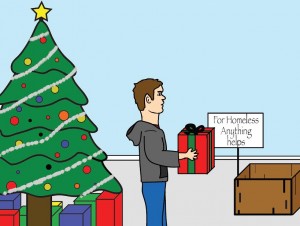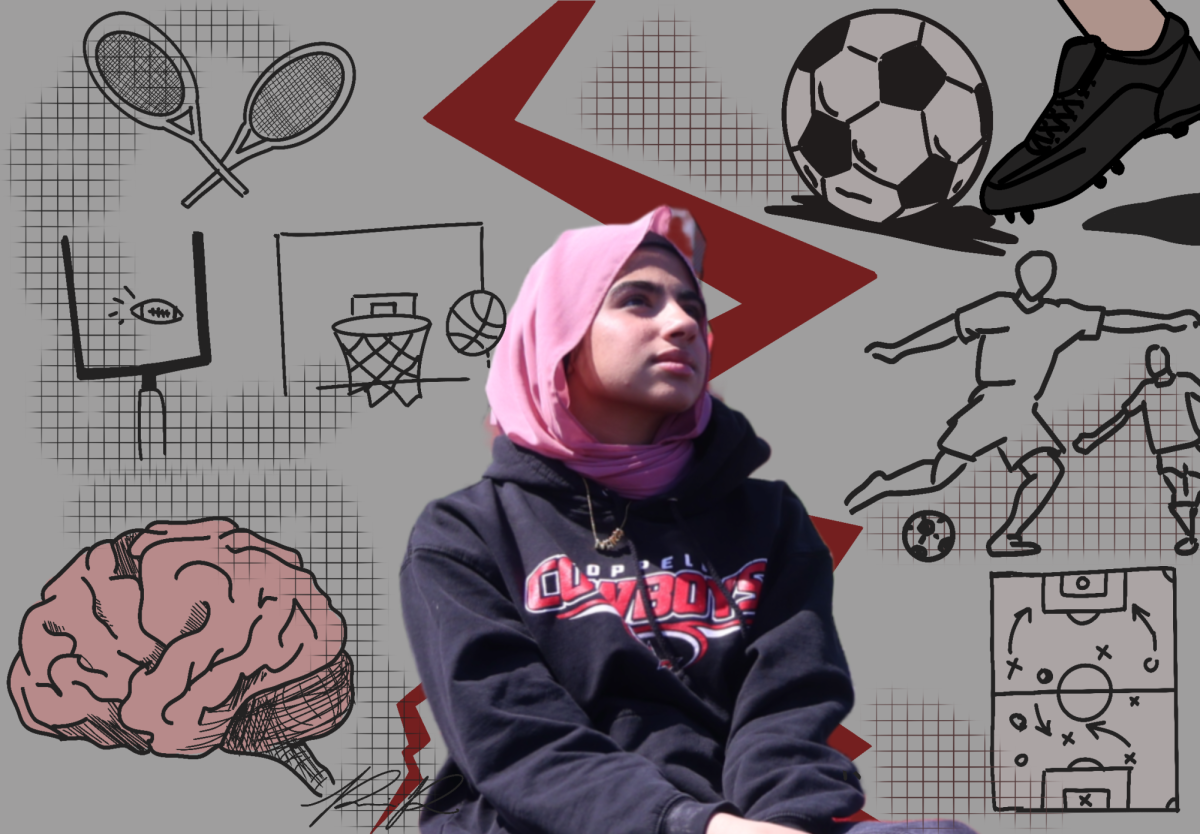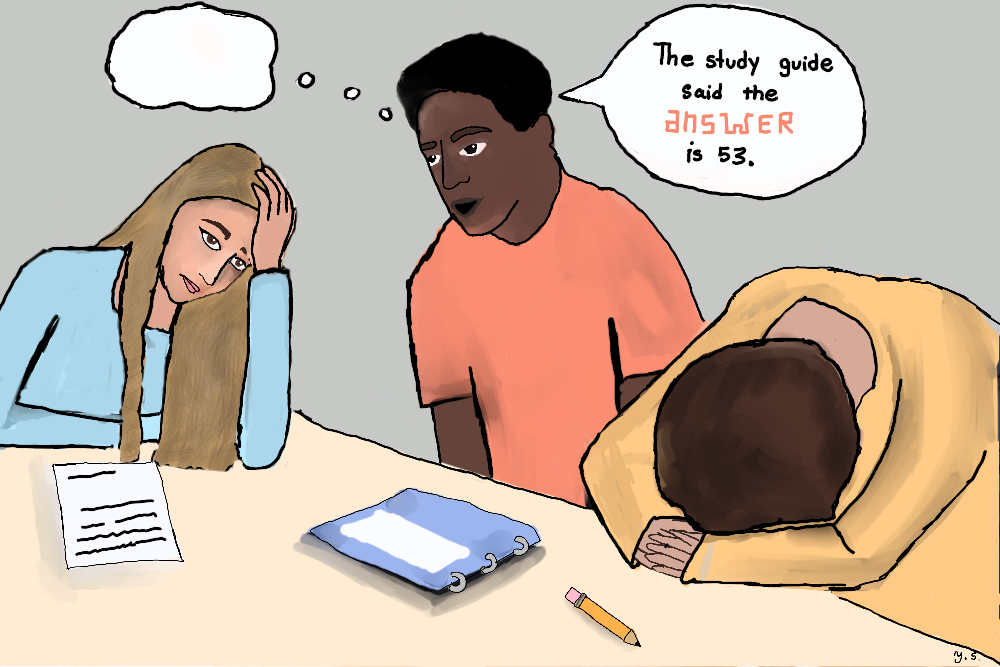
Sakshi Venkatraman
Staff Writer
@oompapa1
Two years ago, I would have never imagined writing a column about this topic and these experiences because of the heavy anchor of shame that I carried in conjunction with them.
For the majority of my life, I always found ways to give back in some way or form during the holidays, however I never truly appreciated these acts of kindness until I was on the receiving end.
In schools, churches and the community in general, we are constantly bombarded with
statements about the “less fortunate”. Many clubs and organization have been dedicated to helping people in hard situations. More so at Christmas than any other time of the year, peoples’ moral compasses point straight to the homes of struggling families who, without support, will not have a holiday that is up to par.
Growing up in a community as affluent as Coppell, the integration of foundations, such as the Angel Tree was something I grew up with. Donation, even if only a dollar in a box, gave me a sense of purpose during the season of giving.
The way I pictured things, the gifts I donated would make a family of four that lived in a box very happy. Although I regret this way of thinking now, I really did not see the people I was giving to on the same social level as me. I did not necessarily view them as lesser humans than me, but I imagined that all of them were so impoverished that they lacked the necessary mean of survival like a warm bed to sleep in or a sturdy pair of shoes/clothes. I did not even give consideration to the fact that they might live within my community.
My rude awakening came to me Christmas of 2012, when a foundation like the Angel Tree made a stop at my house and I realized I was on the opposite end of the spectrum.
My family had experienced a very tough year economically and we had talked about cutting down on material gifts, so I was surprised to say the least, when I woke up on Christmas morning to a whole host of gifts under the tree. The name of my family was embellished on a large paper ornament near the tree.
We opened them to find clothes, shoes, board games and gift cards. Each gift was labeled with either my, my sister’s or my mom’s name. At first, like any 13-year-old, I

was extremely excited to tear into the gifts. After all the frenzy died down, I began to think about where all the presents actually came from.
I knew from the start that it was not my mother’s doing, but I did not think too deeply into it. After we finished opening presents, we all sat down and my mother showed us some pictures. The photos depicted a group of boys and girls at the mall, buying and wrapping gifts.
My mom informed us that she had been asked if our family could be adopted, among other families, by an organization called Making A Change, at a local school for Christmas that year. The boys and girls in the photos were part of a class and given the money to buy gifts for our family.
I was humiliated.
It was not the concept of charity that repelled me, or even the fact that we were certifiably poor, but it was the idea that these children, who were around the age of my younger sister, knew that we were, and not only that, lived so close by.
It was embarrassing that they looked so happy helping us, and I felt small because it was then that I realized the mindset I had when donating to others was most likely the same mindset they had when donating to us.
The idea that we were looked upon with pity by these kids depressed me. They thought we were “less fortunate” citizens. I was upset with my mom for accepting this kind of help; I was not aware we needed it.
I lived in a cozy house where I had my own laptop, where all of us had good shoes and clothes, and we always had food on the table. In my mind, yes, we had sacrificed a few things to the hard times, but it was nothing we could not survive without and the fact that we accepted help from a bunch of kids confused and frustrated me.
I wish I could say that feeling evaporated into thin air, but the truth is, I would still feel uneasy if I was in such a situation today. But what I have come to realize is how much joy those kids must have had when buying and wrapping those presents, and how, like me, they must have pictured our smiling faces after opening them.
I also thought about how happy it made my mom for us to have all those gifts that she would otherwise not have been able to put under the tree. She told us what a blessing this was and that she took comfort in the knowledge that someone was looking out for us, and that we were not alone.
And that kind of happiness and love is what Christmas is actually supposed to be

about. To tell the truth, those kids did make a difference because that year, I became aware that the way I thought about poverty was wrong, and even though my family may have been struggling for money we were nowhere near poor.
We spent Christmas that year with more love than a lot of families have, so as far as I was concerned we were not “inferior in quality” or “lacking something”.
No family should have to feel ashamed on Christmas because of the size of their bank account; the non-material things that should be shared during the holidays cannot be appraised with monetary values.
Although I certainly am an advocate for giving, the meaning of Christmas should not be lost in the commercialism and materialism of it all. The joy on those children’s faces, the patience with which they had wrapped each toy and the love with which they picked their recipients meant more to me than the presents. Those actions embody the spirit of the holiday season and we felt it more that year than any other year before it.








